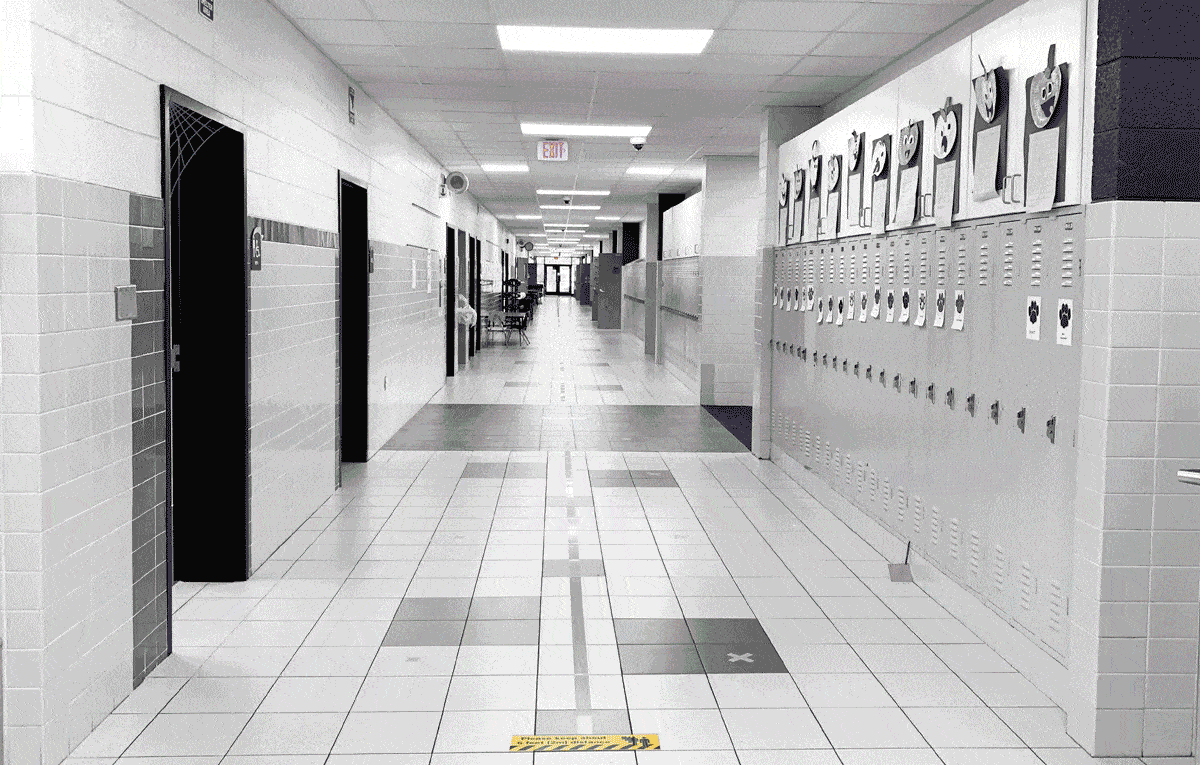
School buildings are designed to be full of life. What happens when quarantine or staff challenges force students to stay home? Life doesn’t stop, but some extra care might help school buildings weather the break and stay fresh for when students return someday.
Facilities challenges aren’t limited to the physical cleanliness of hallways and classrooms, although that’s a big part of it. IT management, automation, servers, sprinkler systems, plumbing, and even pest control all play a role in caring for a lower occupancy building.
Go with the flow
Zone in on the water system at schools with low occupancy. Using less water than usual presents a unique set of challenges to even cutting-edge plumbing systems—and some aging buildings will see more issues than others.Plan to test the water for signs of problems in pipes and flush the system frequently to keep bacteria and other contaminants low. If in a colder climate, unused pipes can freeze if neglected. Sprinkler systems outside may be part of your typical seasonal rotation, but if not, maintenance crews may elect to flush the system and winterize it for long absences.
Neglect can cause small problems to escalate, bringing negative attention to a school district already battling unexpected challenges. Planning ahead keeps water systems in tip-top shape, so they’ll be ready when groups of students return to school again.
Technology maintenance
Your IT team has been shining during the rapid switches from virtual to hybrid to in-person learning. Some considerations for long absences from buildings may include bringing tech help to wherever students might be, keeping servers humming along, and figuring out refresh and update strategies from afar.Students may be connecting to school servers remotely. Is everything secure and capable of handling traffic from both on campus and outside the immediate area?
If you haven’t already, consider setting up a remote IT support triage strategy to assist parents and students with tech questions at home.
Technology updates don’t stop because school has moved to a virtual setting—on the contrary, regular automatic updates and technology refreshes are even more crucial for keeping everyone secure.
If you’re not quite sure where to start, consider reaching out to a trusted edtech partner for the support you need. They can guide you in the right direction for maintaining technology support remotely, especially if their teams have also been working in a remote or hybrid setting.
Other low-occupancy risks
Some staff will still need to access the building to complete their work tasks. These may be the folks who are mentioned above, keeping the building and the network access afloat for others, or staff who require in-person access to technology or broadband.Building security should remain tight for those working onsite. Maintain the security requirements such as badges, secure entrances, and guest sign-in (if guests are allowed at all) that have become part of your school culture and safety protocol.
Finally, an interesting curveball to low occupancy exists in the form of pest control. When people move out, critters can move in. Have those who are working in the building keep an eye out and report any furry or crawly intruders so they can be relocated ASAP.
If schools need to remain closed to the student population for a stretch of time, these facilities challenges can trip up even the most seasoned school leaders. After all, schools are designed to stay full of learners.
Hopefully, the unnerving feeling of returning to rooms with unflipped calendars, frozen in time, will fade into a memory of what we’ve overcome.
Follow-up resource: More hidden costs
Ever considered the cost of poor support when it comes to edtech? Here's what to watch out for.WHAT'S NEXT FOR YOUR EDTECH? The right combo of tools & support retains staff and serves students better. We'd love to help. Visit skyward.com/get-started to learn more.

|
Casey Thompson Web & Digital Media Manager |




